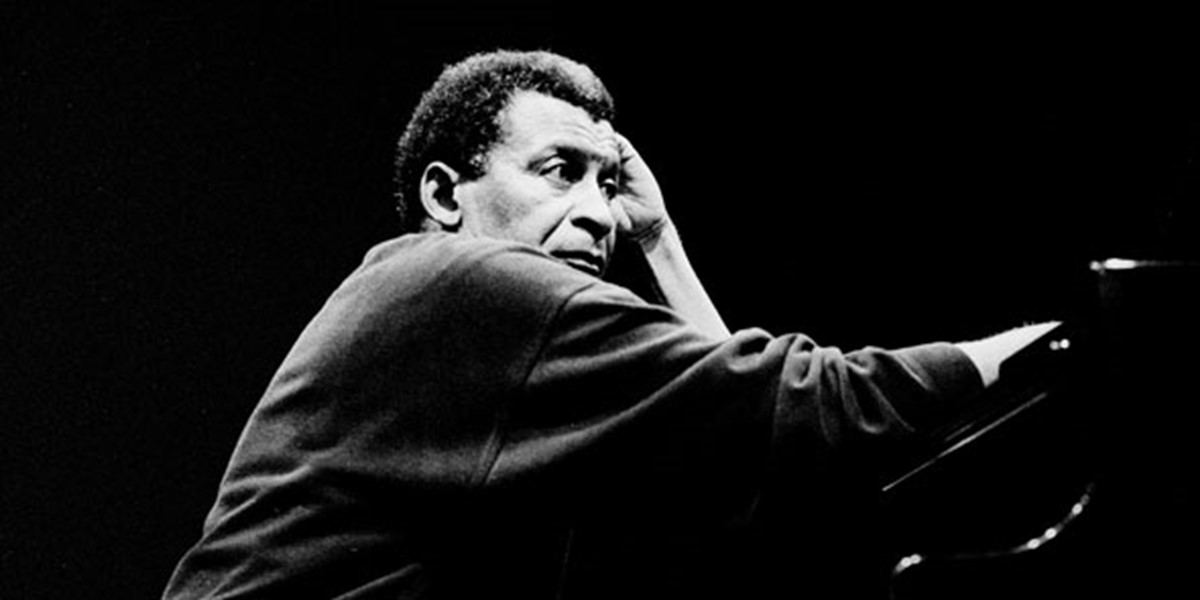Thursday, March 1, 2018
Jazz is World Music
Why is there so much snobbery and closed-mindedness about jazz from the ‘world music police’?

(Photo: Abdullah Ibrahim, by David Sinclair)
We’ve all encountered the feared and hated ‘jazz police’ at one time or another. You know the type: scoffing at your collection for not having all 18 volumes of the Charlie Parker in Los Angeles outtakes; dismissing all post-1968 Miles Davis recordings as a sell-out; looking down their noses at the chops of ‘mere rock’n’roll’ players. Yes, these people do exist and they are insufferable. And yet in my 25 years as a jazz fan I can say these self-appointed guardians are a very small minority of people I meet in the worldwide jazz community. Most jazz fans I know are extremely open to music from anywhere and everywhere, even more so than many so-called ‘world music fans.’ In fact, the ‘world music police’ are out there and they are just as narrow-minded and annoying as their jazz police brothers and sisters.
You know who these people are: those who attend world music festivals in a poncho, smoke natural cigarettes and proclaim that ‘X’ artist was better before leaving their home country and recording in Western studios. They criticise the Buena Vista Social Club phenomenon for not showing the ‘real Cuban music,’ and claim African female singers are ‘realer when they are less educated.’ (These are all actual quotes.) And the vitriol towards jazz is the worst of it!
Otherwise curious and knowledgeable world music fans seem to have a blind spot about jazz. I believe Andy Kershaw once made the completely bizarre statement that ‘there was no great jazz recorded after bebop.’ The man who helped introduce Malian music to the West thinks all modern jazz is garbage? Surely there’s something odd about being so open in one ear, and so closed in the other.
Even in the hallowed pages of Songlines I’ve lost count of the little snide comments made by reviewers about an album having ‘some boring jazzy noodling bits.’ It’s as if some people in the broader world music community think all jazz musicians and their fans are either beret-wearing poets zoning out to an improvised bass and percussion session or technical fetishists who worship at the fusion altar of long, boring displays of chops. These kinds of stereotypes would be easy to dismiss if they were not so widespread and damaging to jazz musicians struggling to make a living.
There are two troubling issues here. One is the continued stereotyping of jazz fans as snobby, pretentious elitists with rigid boundaries of what is and is not jazz. While the jazz magazines may indicate otherwise, these jazz police are actually a very tiny minority. When I think of all the great folks who introduced me to jazz when I was younger, all of them had collections including rock, blues, soul, classical, ‘world,’ even American country. The second, more important issue, is the inability or unwillingness of many world music fans to see jazz as what it actually IS, and not what banal tripe like the movie Whiplash portray it as. Jazz is black American music that has spread throughout the world, being flexible enough to take in local sounds from places as diverse as Poland, Brazil and India. Even with the most miniscule share of the overall sales market, jazz is the one music you will find almost everywhere. Jazz is the real world music.
I think back on the jazz musicians that I was first really drawn to and they were all world music practitioners before the word even existed. Dizzy Gillespie and Chano Pozo helped create Latin jazz by fusing bebop with Cuban rhythms. Dr Yusef Lateef recorded Eastern Sounds in 1961 and featured the koto, shennai and other ethnic instruments decades before people knew the term world music. Weather Report featured at various points musicians from Peru, Puerto Rico, Czechoslovakia, Austria and the US, each member bringing local sounds to the table to create an honest, funky version of truly world music. John Coltrane studied with Ravi Shankar, incorporated Indian scales and modes into his compositions and even brought Sudanese-American bass and oud player Ahmed-Abdul Malik into his group. Visionary and creative musicians like these had no boundaries and resisted the attempt of many to pigeonhole them into some narrow ‘jazz’ parameter. Their foundation was jazz, but in fact they were truly world musicians.
Another common fallacy is that the great jazz musicians are all gone and the music peaked in the 60s. Contemporary artists like Terence Blanchard, Jon Jang, Vijay Iyer and Kenny Garrett are just a few examples of musicians in the jazz community who transcend any one style and create very fresh, borderless music. Have a listen to Kenny Garrett’s Beyond the Wall and prepare to be astonished at how he duets with Chinese erhu player Guowei Wang.
One reason I named my own podcast ‘OK Jazz’ was not only to honour the great Franco & Le Tout Puissant OK Jazz band and to spread the word about Congolese rumba, but also to deliberately confuse people and make them wonder. Is this a jazz show? Why all the African music then? What does jazz have to do with the Congo? Yes, there are some people who won’t enjoy a playlist that features Bobby Hutcherson back to back with Pepe Kalle & Empire Bakuba, but there are enough of us out there who will. Just as we should resist the jazz police’s attempts to create a strict definition of what the music is, so should we resist the world music police’s exclusive elitism. After all, the always-wise Duke Ellington put it best: “There are two kinds of music; good music, and the other kind.”
Listen to James Catchpole’s ‘Jazz is World Music’ playlist on Apple Music:
This article originally appeared in Songlines #120

